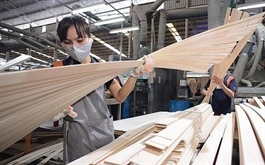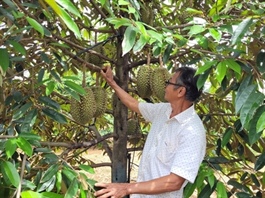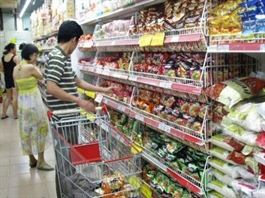Imported cars flood local market despite of poor purchasing power
Imported cars flood local market despite of poor purchasing power
Vietnamese firms spent over US$903 million in the first quarter importing 41,780 completely-built-up (CBU) cars, according to a report by the General Statistics Office (GSO).

The cumulative import turnover of CBU cars in Q1 2023 increased by 76 per cent in volume and 60.8 per cent in value compared to the same period last year.
In March, 15,000 cars worth $332 million were shipped to Viet Nam, representing a year-on-year increase of 48.8 per cent in volume and 48.5 per cent in value.
Despite the increasing number of imported cars, the Vietnam Automobile Manufacturers' Association (VAMA) said that sales for the whole market in the first two months reached just over 17,300 units, due to poor purchasing power.
Local auto experts said this is an unusual and ominous signal as pressure from automobile inventory remains high.
In February alone, purchasing power increased significantly due to promotion campaigns offered by automakers, with a total sale of 28,913 units.
The local auto market is forecast to become break in 2023. An uncompleted statistic shows that Viet Nam’s inventory of cars reached 38,000 units.
Facing the gloomy prospect of the market, VAMA has recently proposed that the Government halve the registration fee for locally-assembled or manufactured cars during the first half of the year to boost market demand.
In a letter sent to the Prime Minister, both the Vietnam Automobile Manufacturers Association (VAMA) and the Vietnam Association of Mechanical Industry (VAMI) also jointly asked for an extension of the deadline to pay excise tax.
The Vehicles Importers Vietnam Association (VIVA) has raised its voice to ask for fair treatment after hearing that the Government asked the Ministry of Finance and other relevant ministries to devise a 50 per cent cut on auto registration fees for locally assembled or manufactured cars.
VIVA said auto importers are facing high inventory, so they also want to enjoy the same support policy from the Government.
Viet Nam saw a sharp increase in purchasing power in the last six months last year, marking a record milestone for the first time in car sales with 500,000 vehicles sold. Of the figure, CBU cars accounted for over 40 per cent.
A representative of a car importer attributed the increase in imported cars in the first three months to purchasing contracts already signed with foreign sellers in 2022, noting that there is no reason for local car importers to purchase more cars this year as they are facing large unsold cars due to local poor purchasing power.
The import turnover of CBU cars is forecasted to continue to decline this year. Unless the support policy from the Government is applied to both Completely Knocked Down (CKD) and CBU vehicles, the local car market may bounce back.
























